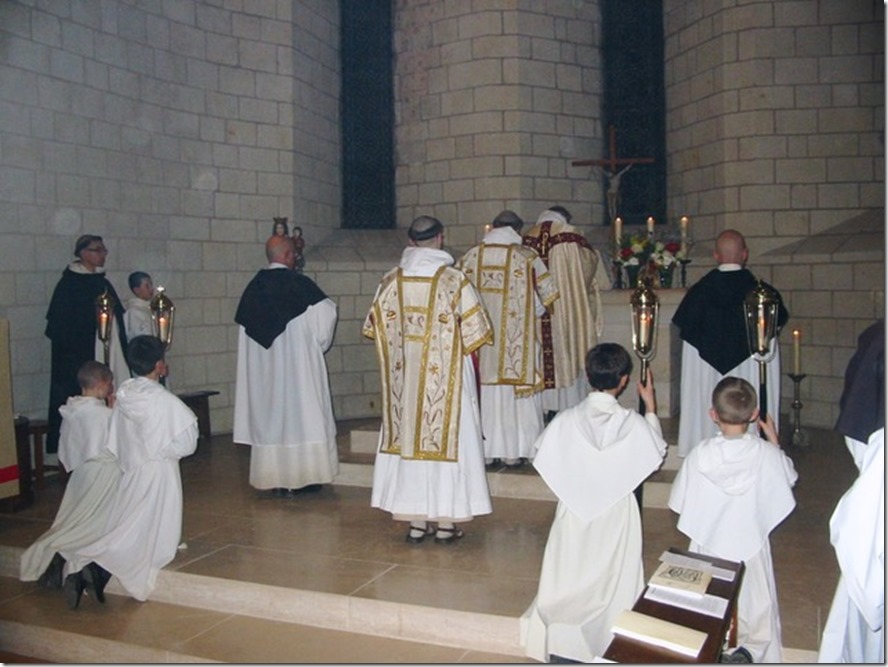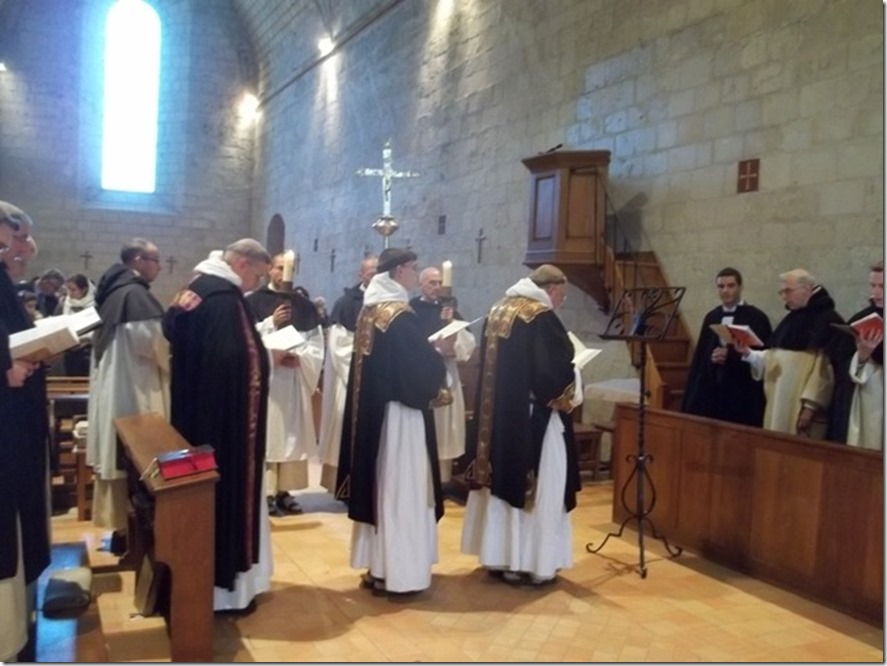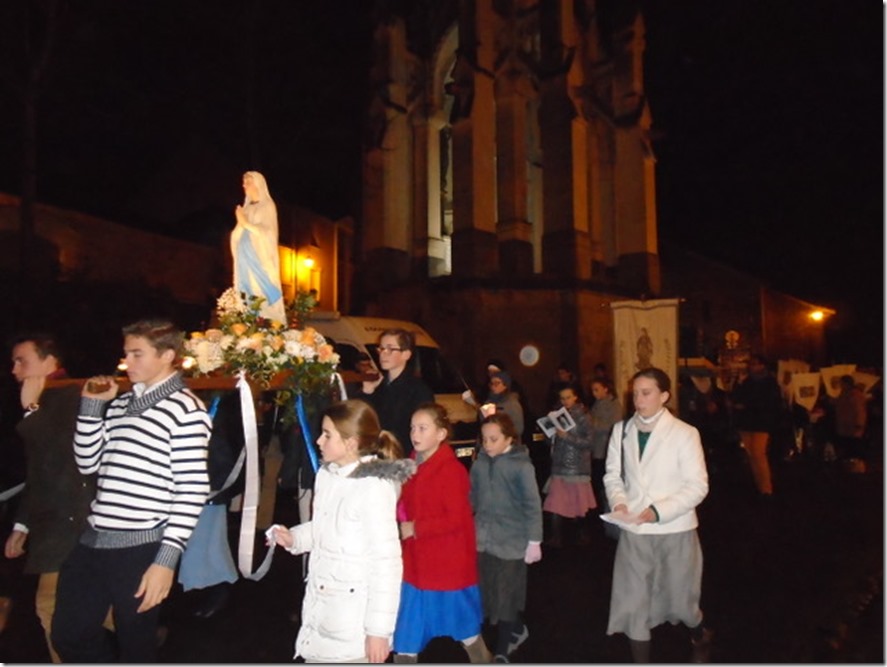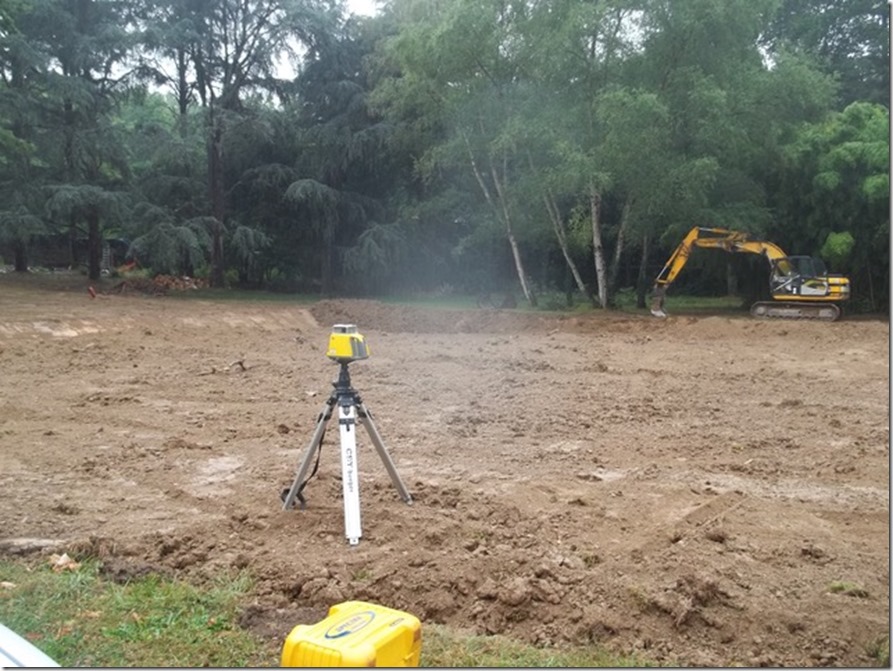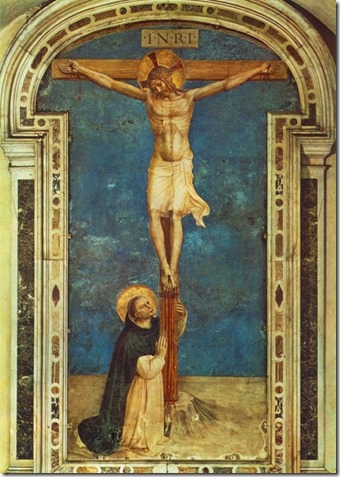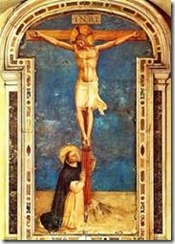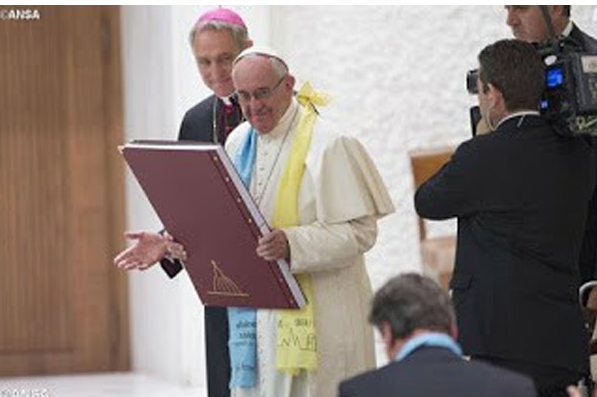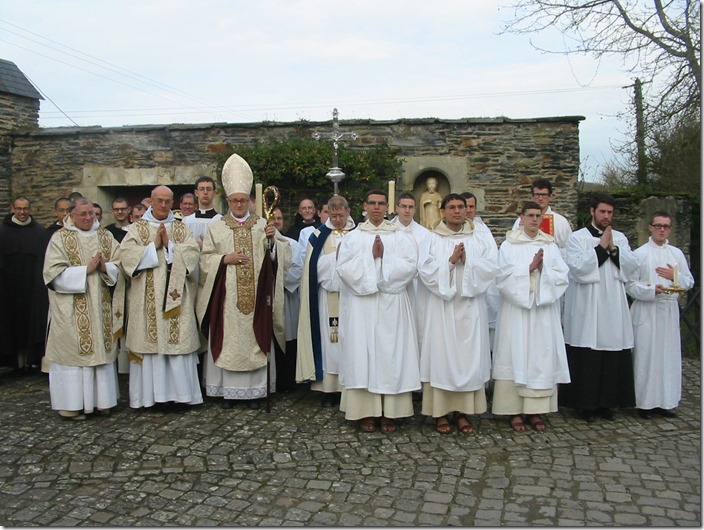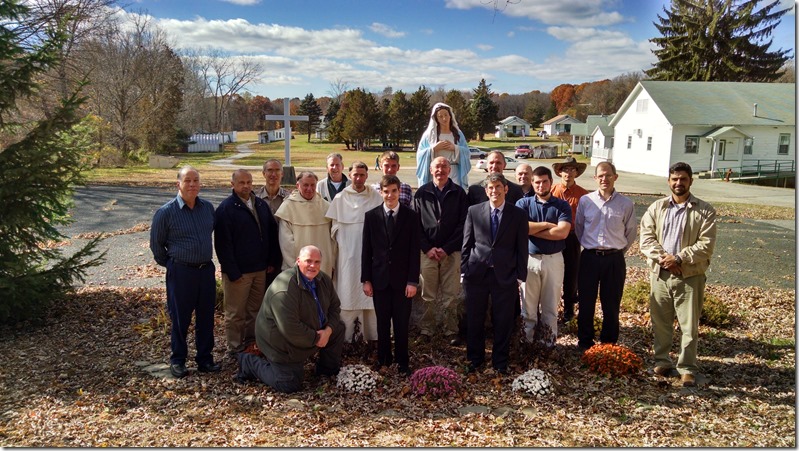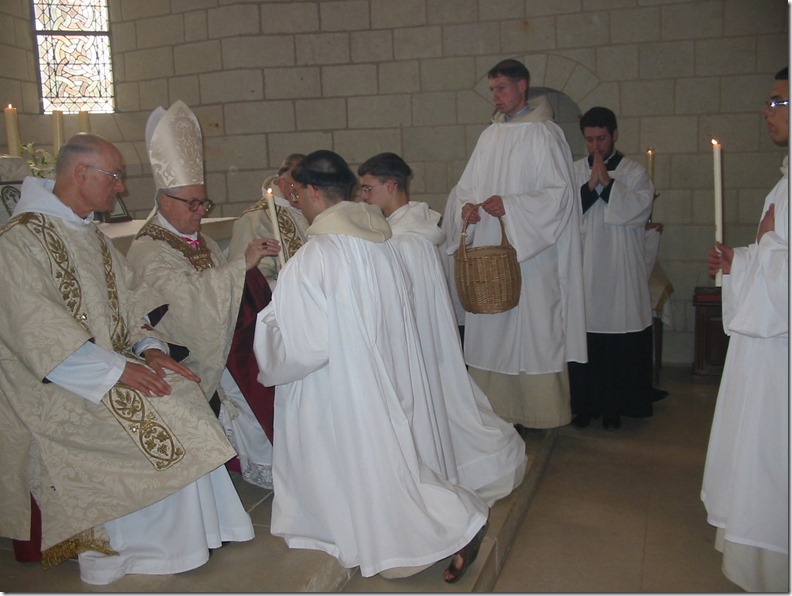Synod on the Amazon
Commentary on the Instrumentum Laboris
by Professor Matteo d’Amico
a document published in Le Sel de la terre 110, autumn 2019
* Presentation by Le Sel de la terre
The preparation of the synod on the Amazon has provoked many reactions in the Church. Several conservative cardinals and bishops criticized the working document (Instrumentum Laboris) to the point of publicly demanding its suppression.
Professor Matteo D’Amico took the trouble to methodically analyze this text in the Courrier de Rome 1. We reproduce here the main passages from his introduction and conclusion.
* Analysis of Professor Matteo d’Amico (it’s only an extract)
[…]
The text of the Instrumentum Laboris […] is divided into three sections :
— the first part entitled “The voice of the Amazonâ€,
— the second part entitled “Integral Ecology : The Cry of the Earth and of the Poorâ€,
— and the third part : “Prophetic Church in the Amazon : Challenges and Hopes.â€
The Method of the Pope
Before starting a brief analysis of the text, let us first make an observation of the method: one will notice that the choice has been made to follow a plan starting from below, i.e., to arrive at the final document starting from the compilation of the questionnaire and a series of innumerable preparatory meetings.
The Pope has already accustomed us to this method in previous synods, such as the one on the family, and the one on the youth. We are faced with a kind of radical ecclesiastical democracy, with a continual appeal to the people and their solicitation to compile “notebooks of grievances†in which one must say what he expects of the Church, and what changes he expects of it. Basically, it is the method of all revolution, starting precisely from the French Revolution of 1789.
It is a dangerous and completely unnatural method for the Church, and unprecedented in all its history 2. The Catholic Church is essentially “magistraâ€: it possesses the truth in its entirety; it guards an immutable and clear doctrine that it has the duty to teach all peoples; it is not a mere human agency or institution that must conduct surveys on how to adapt a service to the requirements of its customers. Given the relationship between the Teaching Church (the Pope and the episcopate united to him and subordinate to him) and the Church Taught, it makes no sense to reverse the terms of the relationship and think that the Church Taught should teach the Teaching Church what to do or what to teach. We are facing an antichristic reversal of the right relationship that we should have with the Authority: we will see that this is the heart of the document, and in reality this is the heart of the very personal and heterodox interpretation that the Pontiff gives of the role and duties of the Church.
The Amazon
But it is useful to ask one last question: 34 million people live in the Amazon, of which more than 3 million are Indios, Indian natives (on a territory of 7.5 million square kilometers). It is a derisory number of inhabitants, equivalent to a little more than half of the inhabitants of Italy, but spread over a territory almost 22 times larger than that of Italy.
So why such an emphasis on the fate of Catholicism in this so particular but quantitatively insignificant region, regarding membership to the Catholic Church?
Are there not more urgent problems, such as the very profound de-Christianization of European Catholic States for centuries?
Are there not gigantic problems in the field of bioethics that would require extraordinary synods, such as the problems of abortion, euthanasia, homosexual unions?
Therefore, it does not seem rash to assume that the anxiety for 3 million Amerindians scattered in the vast Amazonian forest has another origin, and comes from ecological strategies put forward by the strong powers in the whole world, and that the Church must be the spokesperson and the sounding board, given its role of moral authority, certainly tamed and controlled but still influential on many, useful to give a varnish of spirituality to the global dictatorship that is slowly taking hold. In short, the Pope is used as a luxury Greta, for the use of dazed peoples who are slowly crushed. […]
Conclusion
It may be necessary, in conclusion, to summarize the structure of the document we have analyzed, highlighting its very serious flaws.
1. Firstly, all the laborious discourse that the Instrumentum Laboris develops is made without ever clarifying the situation of the Church in Amazon: it does not reconstruct its history, nor give data on the distribution, development, or the number of baptisms and marriages. Its style is thus totally abstract and, ultimately, not very serious. One does not understand, by reading this text, what it is talking about and what the situation of Catholicism in the Amazon is.
There is no rigorous and serious evaluation of the moral situation, e.g., respect for the conjugal bond, the frequency of the sacraments, etc. The situation could be good or very bad, but we do not know.
2. The confusion is increased by the fact that it is never clear whether it refers to the evangelization of the already baptized and converted Amerindians, or if it also speaks of the evangelization of Amerindians far from Gospel and who have never received the Good News. The “ancient†culture and beliefs of Amerindian “ancestors†are exalted to such an extent that it seems they are still pagans.
The worldview of the Amazonian Indians is ridiculously exalted as a vision of life of depth, beauty, harmony, and unmatched delicacy: an even superficial knowledge of these peoples suffices to show that it is a world far from being idyllic. The whole text is crossed and made absurd by this ambiguity.
3. The subject of the salvation of souls, eternal life, and the immortality of the soul is never mentioned in any part of the text. We are faced with a Christianity between the sentimental and the ideological, to be corrected to better favor harmony with nature. The text presents a faith completely emptied of its kernel of eschatological and soteriological force.
It never speaks of sin and, at the same time, there is not the slightest allusion to the Cross of Jesus-Christ and the economy of salvation based on the Cross. As sin is completely absent, so too is the theme of salvation absent, and not by chance: what salvation is needed if there is no sin? The very name of Jesus-Christ is mentioned only a very few times, and neither is this a coincidence.
Logically, there is no reference to the life of grace and the need to nourish it with the sacraments and prayer: all life of piety is dissolved in a nebula of continual exaltations of the original spirituality of the Indians of the Amazon, the new “good savagesâ€.
There is […] almost no reference to the Blessed Virgin Mary. And this is very suspicious and raises a lot of doubts about the faith of those who wrote this document.
The document presents an idea of completely false and distorted inculturation, which ends up asking the Church to convert to Native American spirituality.
The aim is to alter the priesthood and the liturgy and to clear the way for ordained women in one way or another (even if one does not yet dare to say openly for what purpose exactly).
The doctrinal and scriptural references are minimal, and we are only faced with a flood of references to the texts of Francis, whose jargon is used shamelessly, repeating like parrots his typical expressions (and especially a “Church that goes forthâ€).
4. The whole text is frankly modernist in all its aspects, and especially in its way of pleading the cause of the most frantic “dogmatic mobilismâ€: where doctrine and morality must not be rigid or oppressive, but flexible and able to adapt to the concrete reality and needs of the Amazonian Indians.
The « Instrumentum Laboris » that we have commentated is not a Catholic document, but a breeding ground of heresies. It is a scandalous text, and it is the duty of every Catholic, but especially of every bishop, to publicly condemn it and demand that it be withdrawn, by publicly denouncing its falseness and its pitfalls.
Its application and use during the Synod on the Amazon can only bring about the ruin of the Church in the Amazon, first of all, and worldwide when its application will be expanded.
Translation by A. A.
1 — Le Courrier de Rome, no. 623 (July-August 2019). The issues of the Courrier de Rome can be found at www.courrierderome.org.
2 — It must be added that this alleged democracy is actually a manipulation—as in all Masonic regimes. The puppeteers who claim to listen to “the people†have taken all the necessary steps to hear exactly what they want. Augustin Cochin dismantled these manipulative techniques in the unfolding of the French Revolution, and Fr. Calmel repeatedly stressed that they had entered the Church with the the conciliar revolution. (Ed.)

